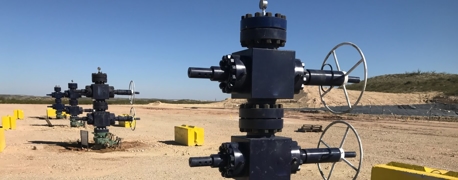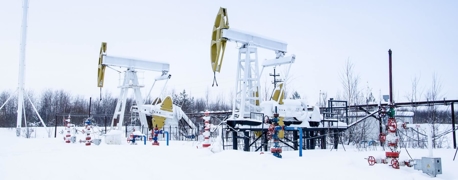What Does a Drilling Contractor Do?

Who are drilling contractors? More than just supervisors, these individuals are pivotal in ensuring that every phase of the drilling project on an oil rig is executed with utmost efficiency, safety, and adherence to environmental protocols. Whether braving the extreme conditions of terrestrial landscapes or navigating the unpredictable seas of offshore operations, drilling contractors face formidable challenges head-on.
The Role of a Drilling Contractor
A drilling contractor is essentially the orchestrator of the drilling site, responsible for managing operations that drill for oil or gas. This role isn't just about supervising the creation of holes in the earth. Drilling contractors oversee the entire lifecycle of a drilling project—from planning and drilling to testing and decommissioning.
Modern drilling contractors must be well-versed in the latest technological advancements, including horizontal drilling, hydraulic fracturing, and enhanced oil recovery techniques. These technologies allow for accessing previously unreachable reserves, improving the economic viability of drilling projects. Moreover, the use of real-time data analytics and remote monitoring has enabled drilling contractors to make informed decisions quickly, optimizing drilling processes and reducing downtime.
Safety and production are the twin pillars of a drilling contractor's responsibilities. Ensuring the safety of the crew and the environment is paramount, with contractors enforcing strict adherence to safety protocols and emergency response plans. Simultaneously, they must keep an eye on production goals, optimizing operations to ensure efficient and profitable extraction of oil or gas.
The Challenges of Working On Land & Offshore
Drilling contractors work in a variety of settings, from the onshore deserts and remote wilderness to the offshore depths of the ocean. Each location presents its own set of challenges; onshore drilling might contend with extreme temperatures and remote locations, while offshore operations face the added complexities of working at sea, such as isolation and the dangers of rough waters.
When working on land rigs, drilling contractors face challenges such as:
- Environmental Extremes: Drilling contractors on land rigs often work in some of the most inhospitable environments on the planet. Desert operations can present scorching temperatures by day and plummeting temperatures by night, while arctic drilling sites offer the opposite challenge with freezing conditions. These extremes require contractors to be adept at managing operations that consider the health and safety of their crew under such conditions.
- Logistical Challenges: Remote locations bring logistical hurdles in terms of transporting equipment, personnel, and supplies. Unlike offshore rigs, where supplies are delivered in scheduled shipments, land rigs might have more frequent resupplying but face difficulties with access, especially in environmentally sensitive or undeveloped areas.
- Variability of Sites: Each land drilling site can differ vastly from the next in terms of geography, climate, and local regulations. Drilling contractors must be versatile, able to quickly adapt their strategies and operations to meet the specific demands of each new location.
Offshore drilling contractors work with risks such as:
- Isolation and Self-Sufficiency: One of the most significant challenges for drilling contractors on offshore rigs is the isolation. Offshore rigs are self-contained communities that operate miles away from the nearest land, requiring a level of self-sufficiency not seen on land rigs. Contractors must ensure that all operations, from drilling to living quarters, function smoothly in this isolated environment.
- Environmental and Weather-Related Risks: Working at sea means contending with a set of environmental challenges that are largely absent on land. Storms can roll in with little warning, and rough seas can halt operations or endanger the rig and its personnel. Drilling contractors must be vigilant, with a keen eye on weather forecasts and an always-ready contingency plan for evacuations or securing the rig against severe weather.
- Technical and Operational Complexities: Offshore drilling involves deeper drilling depths and more sophisticated technology, which translates to a higher level of complexity in operations. Contractors must have a thorough understanding of advanced drilling techniques, such as dynamic positioning for floating rigs, and the technical know-how to troubleshoot a wider range of equipment issues.
Despite the differences, both land and offshore drilling contractors share a common priority: safety and environmental stewardship. The potential for accidents, spills, and environmental damage requires a rigorous commitment to safety protocols and environmental regulations. Contractors in both settings are responsible for ensuring that their operations adhere to the highest standards of safety and are conducted with minimal environmental impact.
The Path to Becoming a Drilling Contractor
The journey to becoming a drilling contractor often begins with a solid educational foundation, typically in fields like petroleum engineering, mechanical engineering, or geology. However, the role also demands a hefty amount of on-the-job experience. Certifications in safety, emergency response, and specific drilling technologies are crucial. Moreover, the progression from entry-level positions, such as a leasehand, through the ranks to a contractor, provides invaluable experience and insight into every facet of drilling operations.
Positions on a Drilling Team
Within the hierarchy of a drilling team, not all contractors are the same. Experience, specialization (such as in directional drilling or deepwater drilling), and leadership skills play a significant role in defining a contractor's responsibilities and tasks. These distinctions affect not only the day-to-day duties but also the contractor's approach to safety, efficiency, and team management.
A drilling team is typically made up of the following roles:
- Floorhand
- Motorhand or Chainhand
- Derrickhand
- Relief Driller
- Driller
- Rig Manager, also known as a Tool Pusher
A drilling contractor does not work in isolation. They are at the center of a network of professionals, including mud loggers, derrickhands, and drilling engineers, to name a few. Each role contributes a piece to the puzzle, with the contractor ensuring that all pieces fit together seamlessly. This collaboration is essential for the safety and success of the operation, requiring clear communication, respect, and a shared commitment to operational goals.
Risks & Consequences of the Role
The job of a drilling contractor comes with significant risks. Accidents, such as blowouts, falls, and equipment failures, can lead to injuries or fatalities, highlighting the importance of rigorous safety standards. On the production side, a contractor's failure to manage operations effectively can result in costly delays, environmental damage, and loss of resources.
Failure in the role of a drilling contractor can have far-reaching consequences. Beyond the immediate risks to safety and production, there are environmental implications, potential legal liabilities, and financial losses. A single oversight can lead to a cascading series of failures, underscoring the critical importance of competence, vigilance, and leadership in this role.
Drilling Contractors: Keeping Oil Rigs Running
The role of a drilling contractor is both demanding and rewarding. It requires a blend of technical knowledge, practical experience, and leadership skills, all honed in the challenging environments of oil and gas extraction. As guardians of safety and efficiency, drilling contractors play a critical role in powering our world, navigating the complexities of the earth's subsurface to harness the energy resources that fuel our daily lives. Their work is a testament to the blend of science, skill, and perseverance that defines the oil and gas industry.


